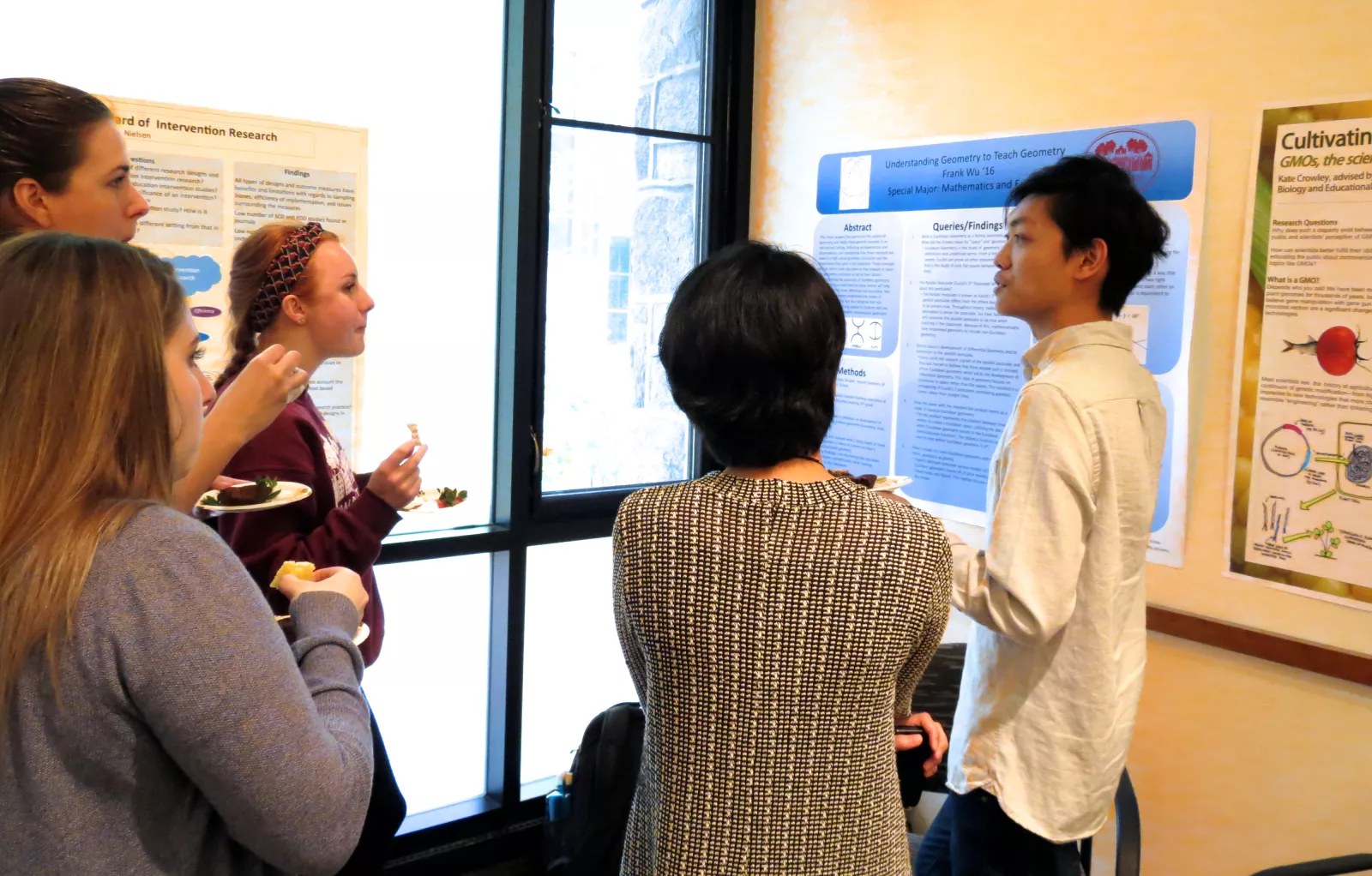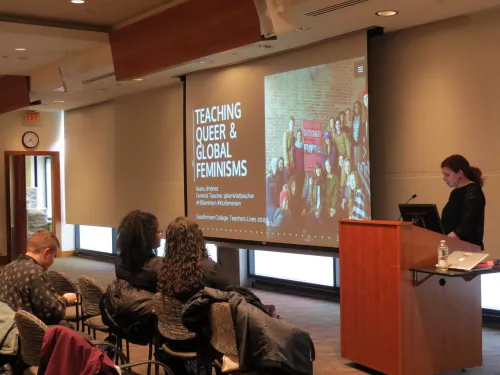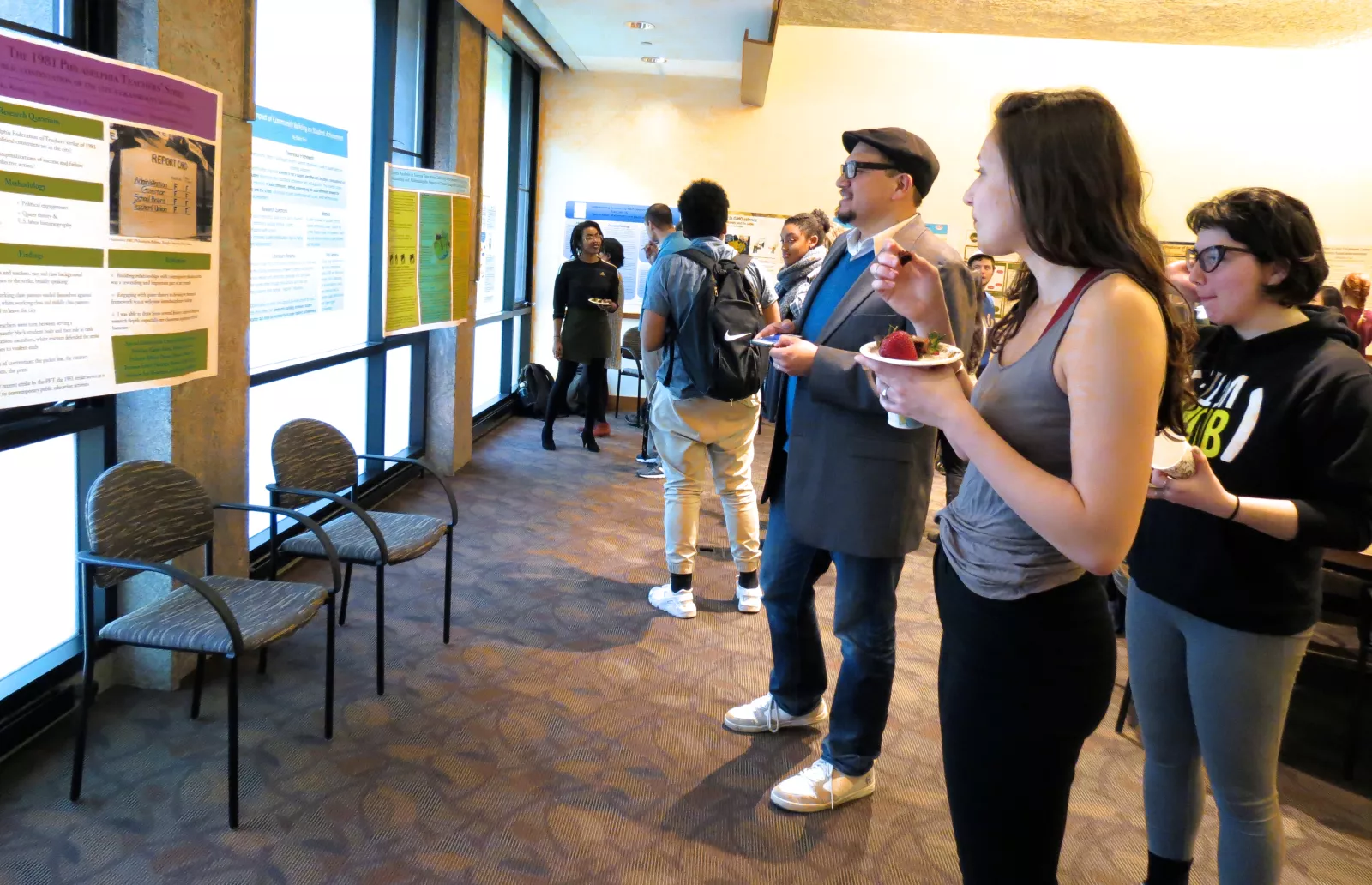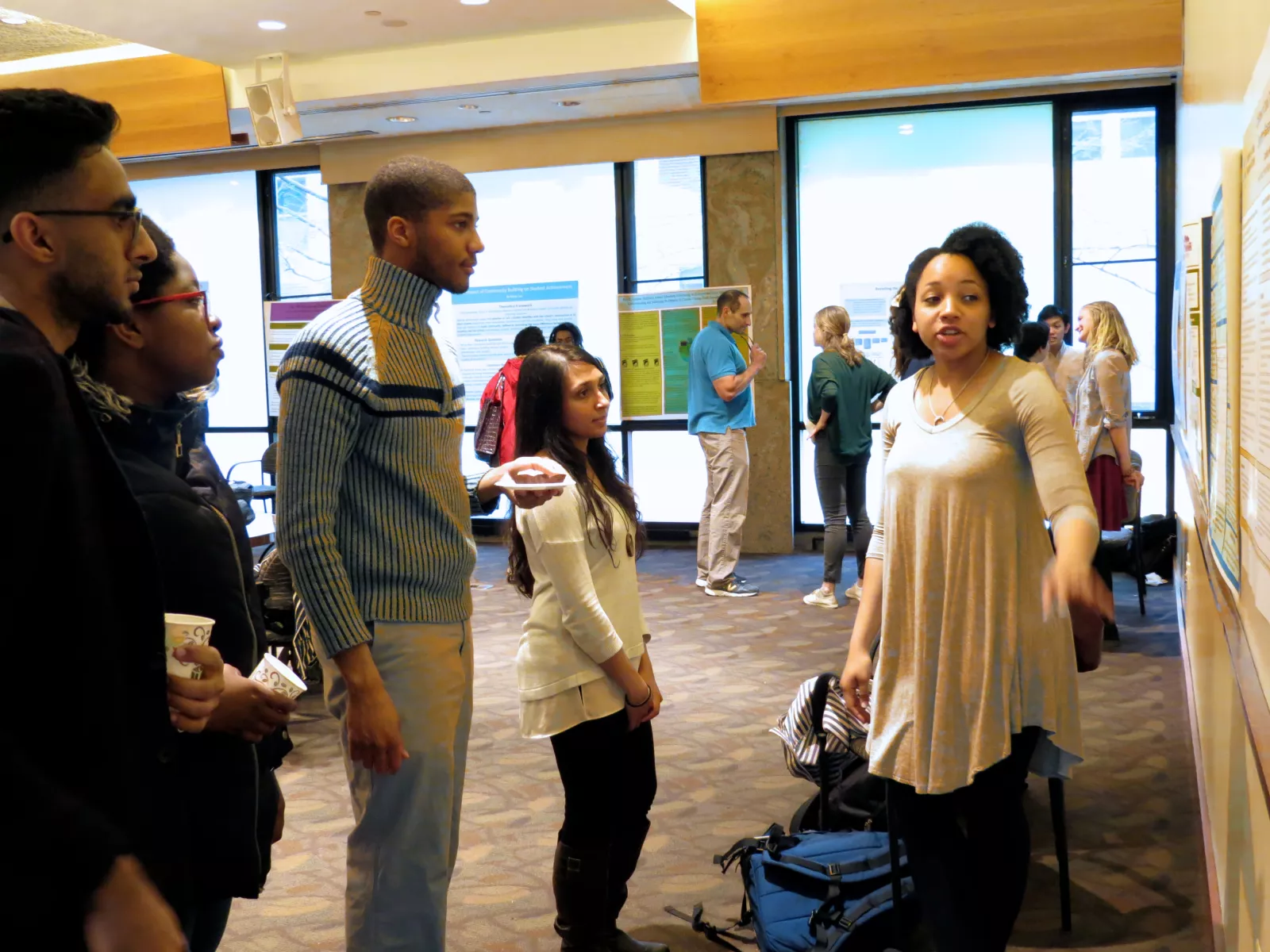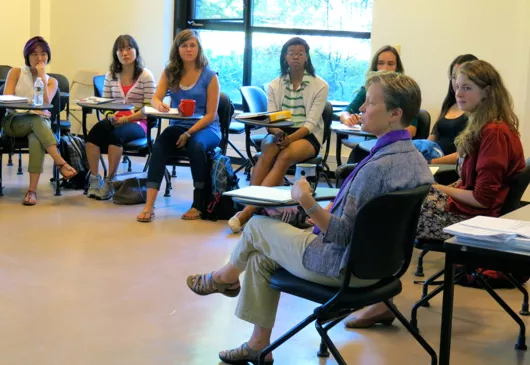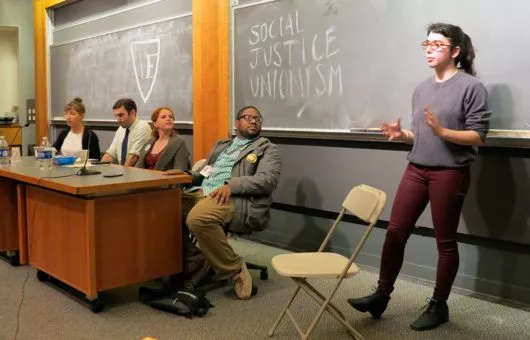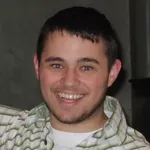Academic Program
Students interested in education at Swarthmore may 1) complete an honors or course major or minor in educational studies; 2) complete an honors or course major in educational studies and a partner discipline; and/or 3) pursue elementary or secondary teacher certification. Research and fieldwork are distinctive components of all of these options.
All majors at Swarthmore are required to complete a comprehensive experience as part of their program. In Educational Studies, students commonly complete a 1 or 2 credit thesis. Beginning with the Class of 2022, course majors also have the option of the Capstone Experience.
Research Opportunities and Experiences
Engaging in research is integral to educational studies. Participation in research allows students to understand its role in theory, policy-making and practice. In each course and seminar, students are introduced to qualitative and quantitative methods of research, which they use to explore questions addressed by the class.
In many courses and seminars, students not only read original research, but they also collect and analyze data using appropriate methods.
Some students conduct independent research or serve as research assistants on faculty members' projects. Many such collaborations have led to student-faculty co-authored conference presentations, articles and chapters. Students who major in Educational with a partner discipline usually complete a one or two credit thesis which involves original research and bridges the two disciplines.
All of the College librarians are eager to assist students with research questions. Christina Bush, Social Sciences & Data Librarian, serves as the library liaison for Educational Studies.
Fieldwork and Community Based Learning Opportunities
Bridging research and practice is a goal for courses and seminars in the department. The majority of classes include a distinctive fieldwork component. Course descriptions indicate which offerings include field placements. Field activities and required hours differ, depending on the goals and objectives of each course.
Depending on transportation options and course expectations, students may request fieldwork placements in urban, suburban or rural communities and choose from public, charter or private school settings. Students are encouraged to use the field placements as an opportunity to explore a range of schools and populations.
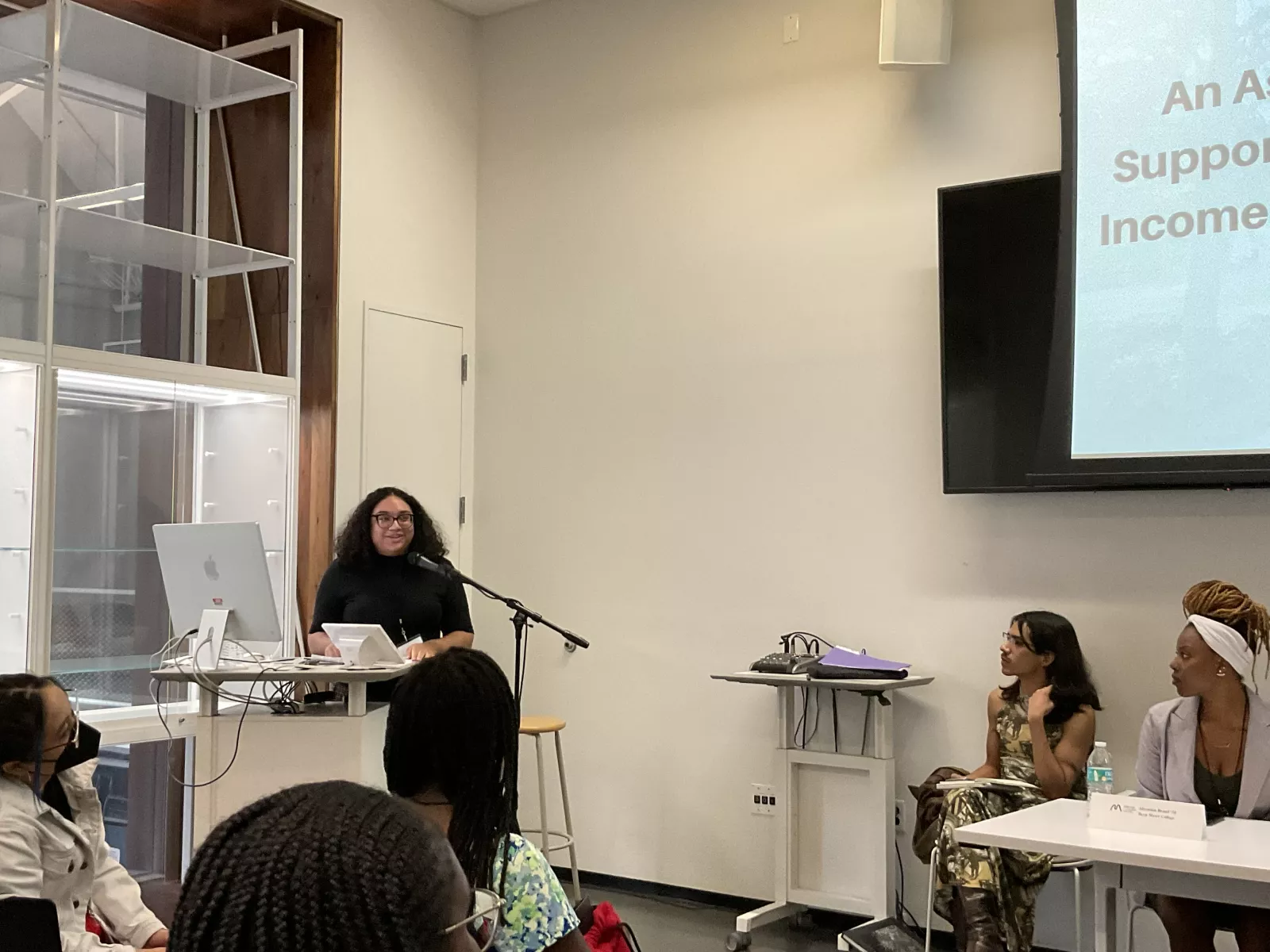 Photo
by
Lisa Smulyan
Photo
by
Lisa Smulyan
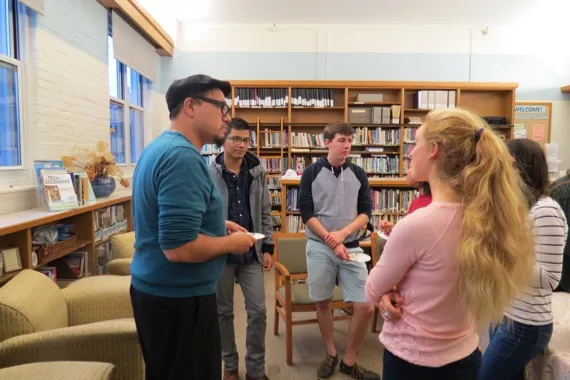 Photo
by
Kae Kalwaic
Photo
by
Kae Kalwaic


